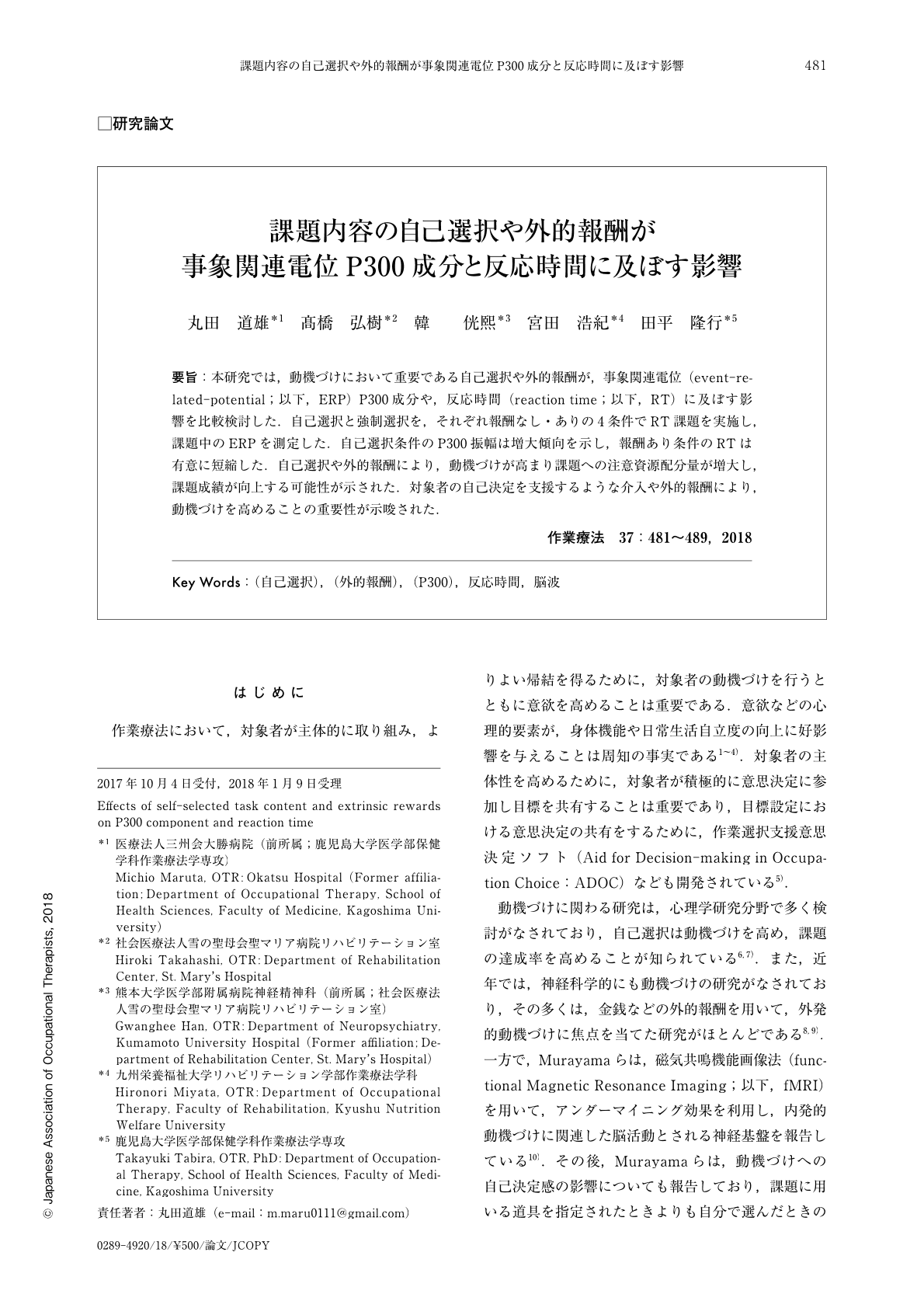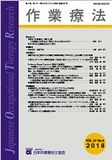Japanese
English
- 販売していません
- Abstract 文献概要
- 1ページ目 Look Inside
- 参考文献 Reference
要旨:本研究では,動機づけにおいて重要である自己選択や外的報酬が,事象関連電位(event-related-potential;以下,ERP)P300成分や,反応時間(reaction time;以下,RT)に及ぼす影響を比較検討した.自己選択と強制選択を,それぞれ報酬なし・ありの4条件でRT課題を実施し,課題中のERPを測定した.自己選択条件のP300振幅は増大傾向を示し,報酬あり条件のRTは有意に短縮した.自己選択や外的報酬により,動機づけが高まり課題への注意資源配分量が増大し,課題成績が向上する可能性が示された.対象者の自己決定を支援するような介入や外的報酬により,動機づけを高めることの重要性が示唆された.
In this study, we examined the effects of self-selected and extrinsic rewards, which are considered important for enhancing motivation, on the P300 component of event-related-potential (ERP) and the reaction time (RT) in healthy adults. The RT task was executed under four conditions (non reward-self-select, non reward-forced-select, reward-self-select, and reward-forced-select), during which ERP was measured. P300 amplitude tended to increase in the self-select condition, while RT was significantly shortened in the reward condition. In other words, self-selected and extrinsic rewards reflected a possible increase in attention resource allocation for tasks by increasing motivation, which led to improved task results. Our findings suggest that in occupational therapy, it is important to increase motivation by supporting clients' self-selected activity and using extrinsic rewards.

Copyright © 2018, Japanese Association of Occupational Therapists. All rights reserved.


